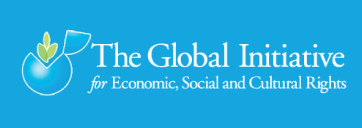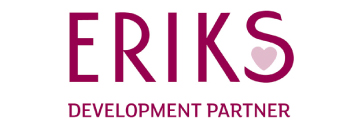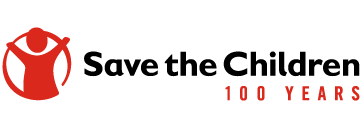THE UNIVERSAL PERIODIC REVIEW
In 2006 the United Nations General Assembly adopted Resolution 60/251, to establish a Human Rights Council (replacing the Human Rights Commission). It is charged with the responsibility of promoting universal respect for all human rights and fundamental freedoms for all among Member States, among other things. One of the key mandates of the Council is to undertake the Universal Periodic Review (UPR) which seeks to ensure the fulfillment of each States’ human rights obligations and commitments.
The UPR is a unique inter-governmental peer-review Human Rights mechanism where each of the 194 Member States of the United Nations is reviewed every 5 years. It is a State-driven process, under the auspices of the Human Rights Council. The entire human rights record of every State is reviewed every five years regardless of its size or political influence, under the same rules and supervision. It provides an opportunity for each State to declare what actions they have taken to improve the human rights situations in their countries and to fulfil their human rights obligations. It is designed to ensure equal treatment for every country when their human rights situations are assessed.
States are required to respond not only to all recommendations made by its peers, but also to provide data on the implementation of recommendations it has previously Accepted, including voluntary commitments. It remains a co-operative process that requires the full participation of the State under Review. The ultimate aim of this mechanism is to improve the human rights situation in all countries and address human rights violations wherever they occur. Currently, no other universal mechanism of this kind exists. The UPR complements the work of all UN treaty bodies. The UPR is a very important process for advancing the realization of human rights nationally, regionally and globally. It is worth noting that the UPR is a process and not an event whose main objective is to improve the human rights situation in the country based on the recommendations that the government accepted.
Kenya’s UPR Process
Kenya’s human rights record has been reviewed by the United Nations Human Rights Council 3 times under the Universal Periodic Review mechanism. The 1st Cycle was in 2010. The 2nd Cycle took place in 2015 where Kenya received a total of 253 recommendations. Out of this, the Government accepted only 192 (76%) recommendations. In 2019, the Kenya Stakeholders on the UPR undertook an in-depth research that established the level of implementation of the recommendations as was contained in the Mid-Term Report which was launched and submitted to the Human Rights Council in Geneva. During the 3rd Cycle that took place on 23rd January, 2020, the country received a total 319 recommendations (compared to 253 in the 2nd Cycle). Out of this, the Government Accepted 261 and Noted 53 recommendations. The Outcome Document of the said review was formally adopted by the United Nations Human Rights Council in June, 2020. Kenya is set to undergo the 4th Cycle review in April, 2025.
Kenya’s Stakeholders Coalition on the UPR ( UPR Kenya)
The Kenya Stakeholders’ Coalition on the UPR has a membership of over 200 NGOs. It is led by a Steering Committee with technical support from the Kenya National Commission on Human Rights (KNCHR); and the UN Office of the High Commissioner on Human Rights (OHCHR). The East African Centre for Human Rights (EACHRights) is the Secretariat of The Kenya Stakeholders Coalition on the UPR (UPR Kenya).
Achievements of the Coalition
Some of the achievements by Kenyan UPR Stakeholders during the 2nd Cycle process and in particular, the development of the MTR process are that 1/ the dedication and commitment to the UPR on the part of the Kenya Stakeholders was reinforced all through the process. 2/ The number of CSOs and thematic groups in the process increased even as the country prepared for the 3rd Cycle. 3/ Connected to the increase is the fact that the Kenyan process has reinforced the indivisibility and interrelatedness of all human rights as it has brought together organizations with different thematic foci and thematic groups. 4/ The coalition was able to coordinate fundraising and resource mobilization to ensure that the UPR process continued with support coming from different organizations. This meant that they have realized the value of the UPR and its ability to provide solutions and the fact that it is a safe place to undertake advocacy on sensitive issues. 5/ By undertaking in-depth research on the different areas for the MTR, the information became very credible baseline for the 3rd Cycle review. 6/ By using credible data to support the advocacy, CSOs have managed to use evidence based advocacy to support the various assertions and positions; and more importantly, to propose solutions that benefit the people of Kenya. 7/ The Kenyan UPR process also reinforced the notion that the UPR is a process and not an event. The CSOs have acknowledged the need to keep track of their respective issues right from the time of drafting the submissions all the way to implementation and providing a MTR all through to the next cycle. 8/ The 3rd Cycle saw concerted efforts to increase the participation of Thematic Groups that had hitherto not been part of the process including Social Justice Centers; Persons with Disabilities; Counter Trafficking; and HIV/Aids, among others; 9/ Many organizations have seen the value of the UPR and have sought funds for the same.
Contact
- Apartment N5 | Nine Planets Apartments | Kabarnet Road | Nairobi
- +254-701-670090
- info@eachrights.or.ke









